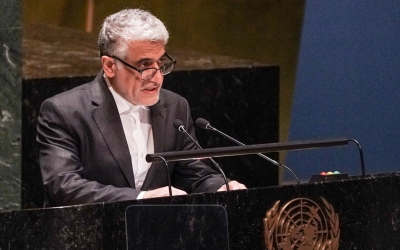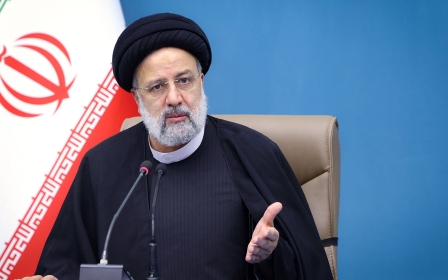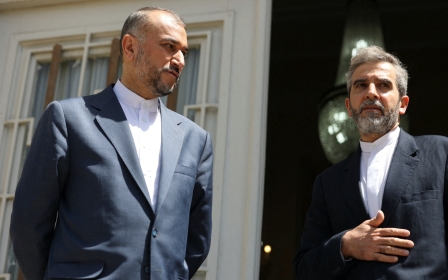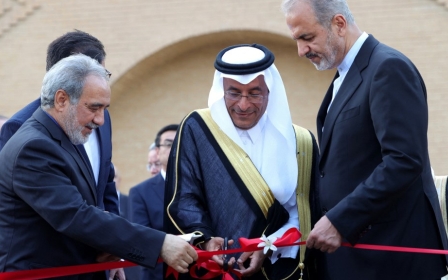Iran's Khamenei says 'nothing wrong' with a nuclear deal with the West
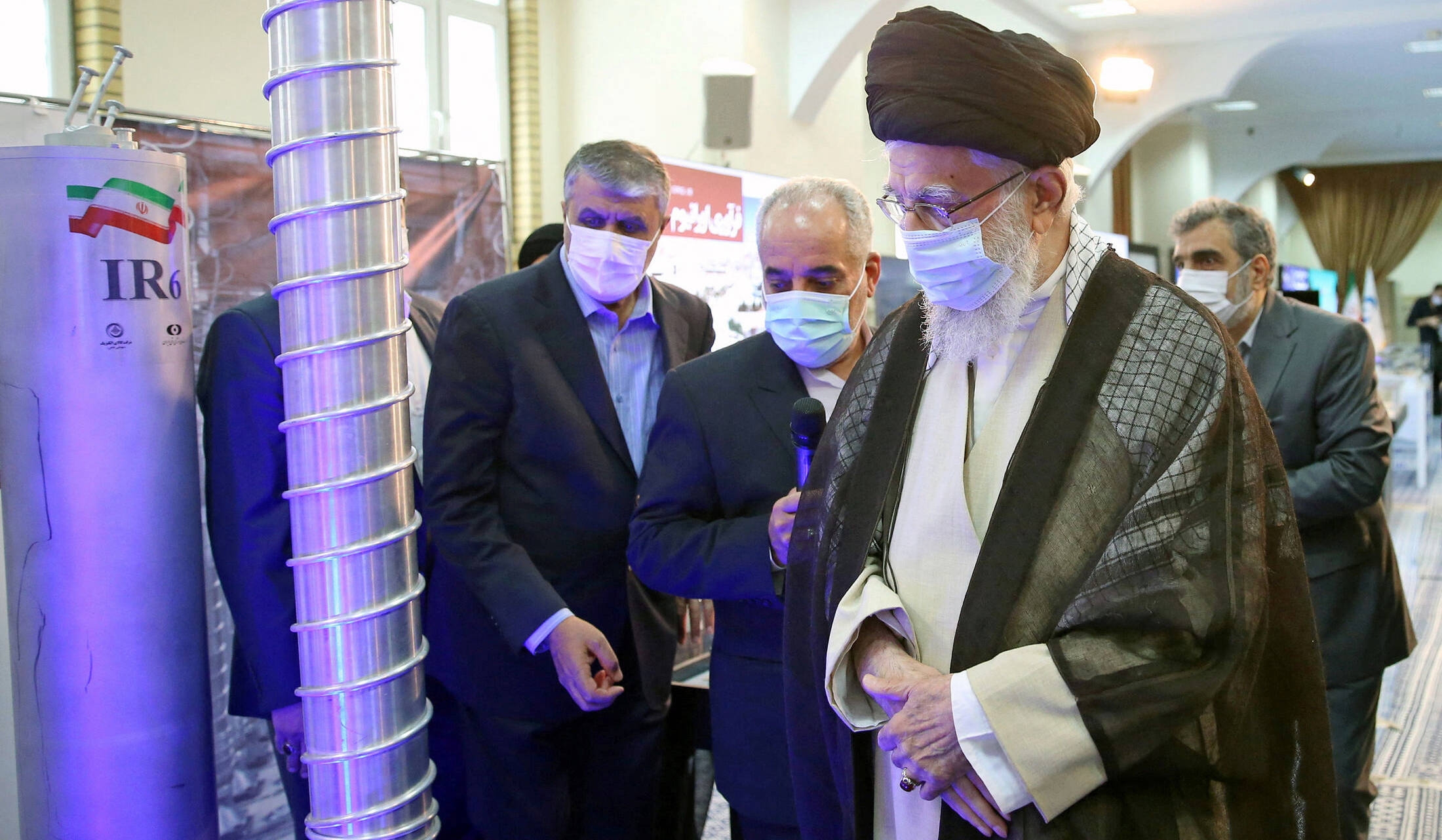
Iran's supreme leader on Sunday said that reaching a deal with the West over Tehran's nuclear activities was not an issue if the country's nuclear infrastructure remained intact.
"There is nothing wrong with the agreement [with the West], but the infrastructure of our nuclear industry should not be touched," Ayatollah Ali Khamenei was quoted as saying by state media.
Khamenei, who has the last say on all state matters, added that Tehran should continue working with the International Atomic Energy Agency (IAEA), the UN nuclear watchdog, "under the framework of safeguards".
Iran has long denied wanting to acquire nuclear weapons.
"Accusations about Tehran seeking nuclear weapons are a lie and they know it. We do not want nuclear arms because of our religious beliefs. Otherwise they [the West] would not have been able to stop it," said Khamenei.
Stay informed with MEE's newsletters
Sign up to get the latest alerts, insights and analysis, starting with Turkey Unpacked
The supreme leader's comments come days after Middle East Eye reported that Iran and the US are close to reaching a temporary deal that would swap some sanctions relief for reducing Iranian uranium enrichment activities, quoting two sources with direct knowledge of the talks.
The White House and the Iranian government have said that there is no agreement for an interim deal.
The US withdrew from the accord in 2018, prompting Iran to start breaching the terms of the deal, which limited Iran's uranium enrichment activity in return for lifting international sanctions.
Indirect talks between Tehran and Washington to revive the deal, known as the JCPOA, with six world powers have been at an impasse since September, with both sides accusing each other of making unreasonable demands.
However, an Iranian official and a person close to negotiations told MEE on Thursday that talks have taken place directly on US soil, marking a notable development in the diplomatic process.
But there is still reluctance on the US side to rejoin the JCPOA.
Under the terms of the interim deal, Iran would commit to ceasing its 60 percent-and-beyond uranium enrichment activities and would continue its cooperation with the IAEA for the monitoring and verification of its nuclear programme.
In exchange, the sources said, Tehran would be allowed to export up to a million barrels of oil per day and gain access to its income and other frozen funds abroad.
Those funds would have to be exclusively used to purchase a range of essential items, including food and medication.
Middle East Eye delivers independent and unrivalled coverage and analysis of the Middle East, North Africa and beyond. To learn more about republishing this content and the associated fees, please fill out this form. More about MEE can be found here.


